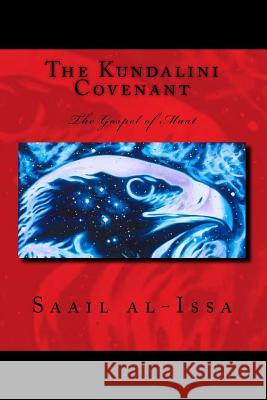The Kundalini Covenant: The Gospel of MAAT » książka
The Kundalini Covenant: The Gospel of MAAT
ISBN-13: 9781516917938 / Angielski / Miękka / 2015 / 246 str.
Maat is the goddess of harmony, justice, and truth represented as a young woman, sitting or standing, holding a was scepter, the symbol of power, in one hand and an ankh, the symbol of eternal life, in the other. Sometimes she is depicted with wings on each arm or as a woman with an ostrich feather on her head. The meaning of this emblem is uncertain, although the god Shu, who in some myths is Maat's brother, also wears it. Depictions of Maat as a goddess are recorded from as early as the middle of the Old Kingdom (c. 2680 to 2190 BCE). The sun-god Ra came from the primeval mound of creation only after he set his daughter Maat in place of Apophis (chaos). Pharaoh inherited the duty to ensure Maat remained in place and they with Ra are said to "live on Maat." Some kings incorporated Maat into their names, being referred to as Lords of Maat, or Meri-Maat (Beloved of Maat). Maat had an invaluable role in the ceremony of the Weighing of the Heart. In the Duat, the Egyptian underworld, the hearts of the dead were said to be weighed against her single "Feather of Ma'at," symbolically representing the concept of Maat, in the Hall of Two Truths. This is why hearts were left in Egyptian mummies while their other organs were removed, as the heart (called "ib") was seen as part of the Egyptian soul. If the heart was found to be lighter or equal in weight to the feather of Maat, the deceased had led a virtuous life and would go on to Aaru. Osiris came to be seen as the guardian of the gates of Aaru after he became part of the Egyptian pantheon and displaced Anubis in the Ogdoad tradition. A heart which was unworthy was devoured by the goddess Ammit and its owner condemned to remain in the Duat. The weighing of the heart, pictured on papyrus in the Book of the Dead typically, or in tomb scenes, shows Anubis overseeing the weighing and the lioness Ammit seated awaiting the results so she could consume those who failed. While the heart was weighed the deceased recited the 42 Negative Confessions as the Assessors of Maat looked unto the Works of the dead. "Truth came home one day, naked and wounded, having been beaten and cursed by the people who did not wish to hear, while his brother Falsehood went dressed in the brightest garments and feasted with every household. "What shall I do?" cried Truth to the gods. "No man wishes to hear me and all beat me and throw things at me; look, I am covered with dung." "You are naked" said the goddess Maat, sympathetically. "No naked one can command respect. Therefore take these robes and you will walk without fear and all men will sit at your feet to hear your stories." And She dressed Truth in Fable's garments, and he was welcome at every house."











